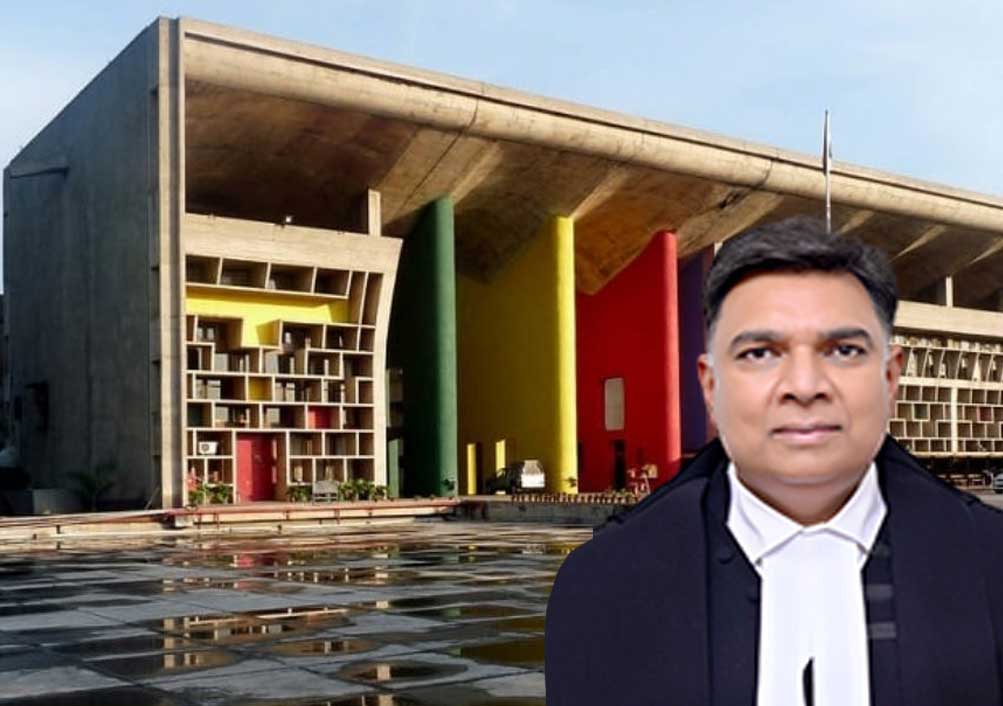In CRM-M-47153-2018-PUNJ HC-If allowing application under Section 311 CrPC amounts to filling up of lacuna, then that by itself would be subsidiary factor and Court's determination of application should be based only on test of 'essentiality of evidence': P&H HC
Justice Jasjit Singh Bedi [19-10-2022]

Read Order: PARDEEP SINGH & ANOTHER V. STATE OF HARYANA & ANOTHER
Monika Rahar
Chandigarh, October 20, 2022: While dealing with a quashing plea, the Punjab and Haryana High Court has held that if allowing an application under Section 311 Cr.P.C. amounts to filling up of a lacuna then that by itself would be a subsidiary factor and the Court's determination of the application should be based only on the test of 'essentiality of the evidence'.
The Bench of Justice Jasjit Singh Bedi held, "Further, the stage of moving of an application under Section 311 Cr.P.C. or the same amounting to the filling up of a lacuna would be subservient to the larger context of the 'essentiality of evidence' sought to be produced."
In her complaint before the Trial Court, the complainant alleged that she purchased a plot of land, in respect of which the first petitioner (taking advantage of her faith in him), fraudulently executed a general power of attorney. Later, the said petitioner allegedly executed a sale deed in favour of his wife (the second petitioner).
The petitioners (accused) came to be summoned to face trial by the said Court. During the pendency of the proceedings and after the closing of the evidence in the complaint case, the first petitioner appeared as a witness in a civil suit arising out of the same transaction and in the said case he made certain admissions which were stated to be relevant for the decision of the present complaint.
Thus, an application for permission to produce additional evidence was moved to bring on record the petitioner's testimony recorded in the said civil suit with the averments that the said statement was relevant for the just decision of the present complaint case.
In response, the petitioners contended that the application was filed to delay proceeding and to fill up a lacuna which the applicant was not entitled to do. Besides, it was argued that the said statement in another case could not be read in evidence in this case since the previous statement of a witness could be relevant only if it had been put to the witness in his cross-examination which was not so in the present case.
The Trial Court opined that the admissibility of the petitioner's statement recorded in civil proceedings would be a matter of adjudication during the trial in the present case. It was further held that as the petitioner was not examined as a witness in the present case, there was no question of confronting him with his statement recorded in the civil case.
Even otherwise, the Court added that any additional evidence sought to be produced by the complainant at that stage would be put to the petitioners/accused at the time of recording of their respective statement under Section 313 Cr.P.C. where they could furnish their explanation. It was thus held that the application under Section 311 Cr.P.C. ought to be allowed subject to payment of cost.
Hence, the present quashing plea challenging the Trial Court order allowing the complainant's application under Section 311 Cr.P.C., was filed.
After hearing the parties, the Court opined that perusal of Section 311 Cr.P.C. along with that of the relevant judgments would establish that if allowing an application under Section 311 Cr.P.C. amounts to filling up of a lacuna then that by itself would be a subsidiary factor and the Court's determination of the application should be based only on the test of 'essentiality of the evidence'.
Coming to the present case, the Court opined that the question of the first petitioner being confronted with his statement/testimony in the civil suit would not arise as in the present case, he was not examined as a witness but in fact was an accused.
Even otherwise, the Bench added,
"... the parties have a right to prove their case in the manner that they think fit and what evidence is sought to be produced cannot be disputed by either party".
Of course, the Court held that the evidentiary value of the additional evidence sought to be brought on record would be a subject matter of appreciation during the course of Trial.
Further, the Court reiterated that the stage of moving of an application under Section 311 Cr.P.C. or the same amounting to the filling up of a lacuna would be subservient to the larger context of the 'essentiality of evidence' sought to be produced.
Cing back to the present case, the Bench opined that the accused/petitioners would certainly have the right to clarify their position with respect to the statements/ deposition sought to be produced in terms of Section 313 Cr.P.C. and therefore it cannot be said that the exercise of powers by the Trial Court had resulted in causing serious prejudice to the accused resulting in miscarriage of justice.
Therefore, the petition was dismissed.
Sign up for our weekly newsletter to stay up to date on our product, events featured blog, special offer and all of the exciting things that take place here at Legitquest.




Add a Comment